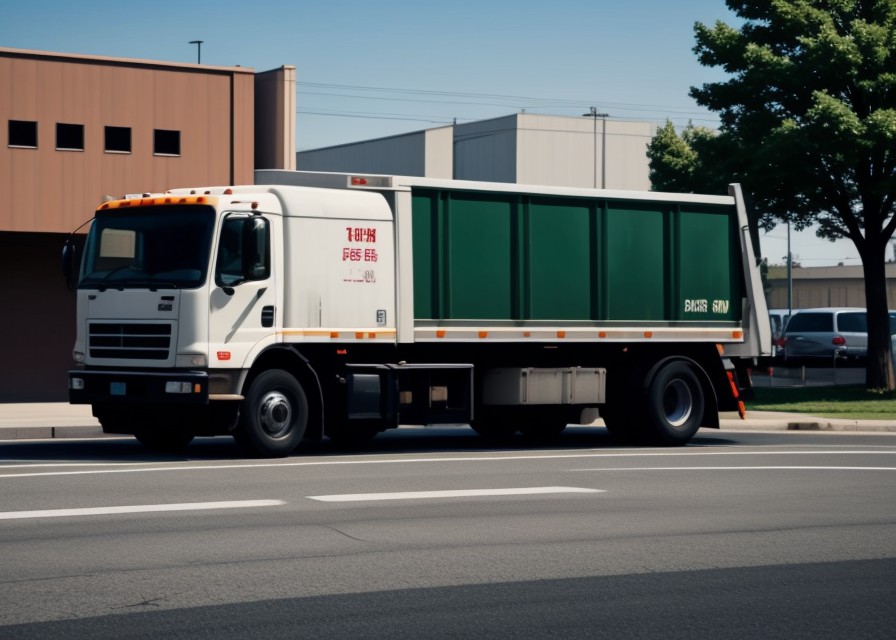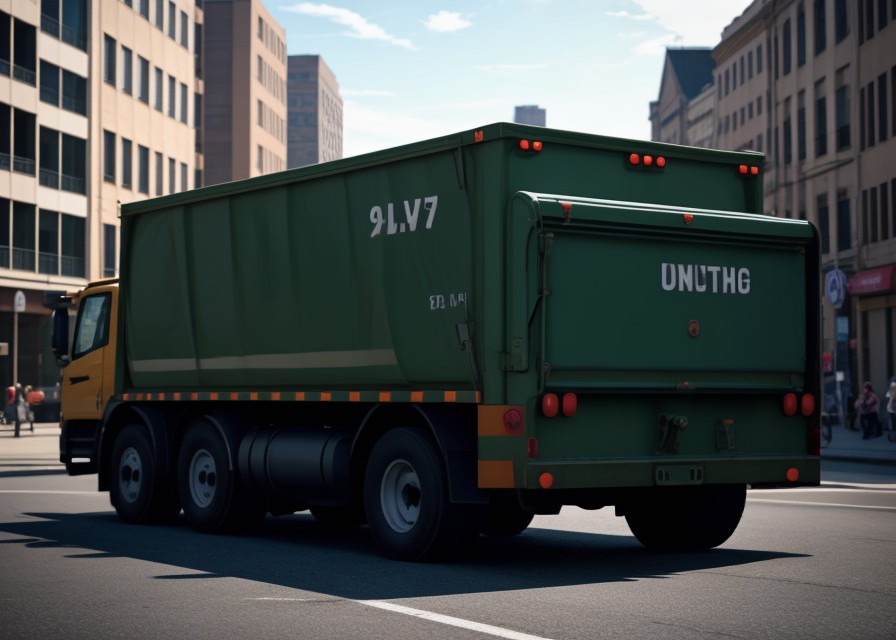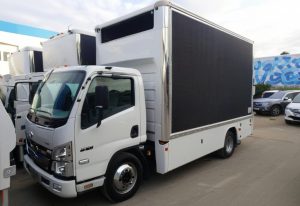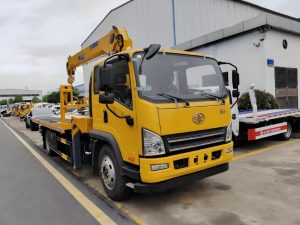Table of Contents
Toggle
Introduction
Garbage trucks, the unsung heroes of urban cleanliness, play a pivotal role in maintaining the hygiene and aesthetics of our cities and towns. These robust machines tirelessly haul away our waste, ensuring our streets remain pristine and our communities healthy. But what exactly goes into selecting the right garbage truck for your needs? Whether you’re a municipality looking to expand your fleet or a private waste management company, finding the perfect garbage truck involves careful consideration of various factors.
Types of Garbage Trucks
Garbage trucks come in various shapes and sizes, each designed for specific types of waste collection and disposal needs. Understanding these different types can help you make an informed decision that best suits your operational requirements.
Front Loaders
Front loaders are equipped with large prongs on the front that lift waste containers over the truck and empty their contents into the top-mounted compactor. These trucks are commonly used for commercial waste collection and are favored for their efficiency in handling large volumes of waste. The design allows for quick loading and unloading, making them ideal for high-density areas where speed and efficiency are paramount.
Rear Loaders
Rear loaders have a hopper at the back where garbage is loaded manually or via an automated arm, which then compacts the waste into the truck’s main body. These trucks are versatile and can handle both residential and commercial waste. Their design allows for easy access to narrow streets and alleys, making them a popular choice for urban areas with tight spaces.
Side Loaders
Side loaders are designed for curbside collection and often come with an automated arm that grabs and empties waste bins into a side-mounted hopper. These trucks are particularly popular in residential areas where they can efficiently handle household waste. The automated arm reduces the need for manual labor, enhancing safety and productivity.
Roll-Off Trucks
Roll-off trucks are used for large-scale waste disposal, featuring a container that can be rolled off the truck’s bed at the disposal site. These trucks are ideal for construction sites, industrial applications, and other scenarios where large volumes of waste need to be transported. The detachable container makes it easy to load and unload waste, providing flexibility for various disposal needs.
Key Features to Consider
When purchasing a garbage truck, several key features should be taken into account to ensure you get the best value for your investment. Understanding these features can help you select a truck that meets your operational needs and budget constraints.
Capacity
The capacity of a garbage truck determines how much waste it can hold before needing to be emptied, which is crucial for efficiency in high-density areas. Trucks with larger capacities can reduce the frequency of trips to disposal sites, saving time and fuel costs. However, larger trucks may also be more challenging to maneuver in tight spaces, so it’s essential to balance capacity with operational requirements.
Engine Type
The engine type impacts the truck’s performance, fuel efficiency, and environmental footprint. Options range from diesel engines to more eco-friendly alternatives like compressed natural gas (CNG). Diesel engines are known for their power and durability, making them suitable for heavy-duty applications. On the other hand, CNG engines offer lower emissions and reduced fuel costs, aligning with environmental sustainability goals.
Hydraulic Systems
Hydraulic systems power the lifting and compacting mechanisms of garbage trucks, so a robust and reliable system is essential for smooth operations. High-quality hydraulic systems can enhance efficiency by reducing downtime and maintenance needs. Look for trucks with advanced hydraulic technology that offers precise control and durability under heavy use.
Safety Features
Safety features such as backup cameras, collision avoidance systems, and ergonomic controls are vital for protecting operators and pedestrians alike. Modern garbage trucks often come equipped with advanced safety technologies that enhance visibility, prevent accidents, and reduce operator fatigue. Investing in trucks with comprehensive safety features can significantly improve operational safety and reduce liability risks.
New vs. Used Garbage Trucks
Choosing between a new or used garbage truck can be challenging, with pros and cons to each option. Your decision will depend on factors such as budget, operational needs, and long-term goals.
Pros of New Garbage Trucks
New garbage trucks come with the latest technology, better fuel efficiency, and lower maintenance costs due to their brand-new components. They offer reliability and peace of mind with manufacturer warranties and support. Additionally, new trucks are often designed to meet the latest emission standards, making them more environmentally friendly.
Cons of New Garbage Trucks
However, new garbage trucks are significantly more expensive upfront and may require higher insurance premiums. The initial investment can be substantial, which may not be feasible for all buyers. Moreover, new trucks may depreciate quickly in value, impacting long-term financial planning.
Pros of Used Garbage Trucks
Used garbage trucks are more affordable initially and can be a cost-effective option if they have been well-maintained. They provide an opportunity to acquire reliable equipment at a fraction of the cost of new trucks. Used trucks also tend to have lower insurance premiums and slower depreciation rates.
Cons of Used Garbage Trucks
On the downside, used trucks may come with hidden issues, higher maintenance costs, and shorter lifespans. It’s essential to conduct thorough inspections and obtain detailed maintenance records before purchasing a used truck. Potential buyers should also be prepared for unexpected repairs and replacement parts that may be harder to find.
Popular Brands and Models
Several brands stand out in the garbage truck industry for their reliability, performance, and innovation. Familiarizing yourself with these brands can help you make an informed decision when purchasing a garbage truck.
Mack
Mack trucks are renowned for their durability and powerful engines, making them a popular choice for heavy-duty waste collection. Known for their robust construction and advanced technology, Mack trucks offer excellent performance in demanding environments. They also provide a range of customization options to meet specific operational needs.
Peterbilt
Peterbilt offers a range of customizable garbage trucks that combine performance with driver comfort. Their trucks are known for their reliability, fuel efficiency, and innovative features that enhance productivity. Peterbilt’s commitment to quality ensures that their trucks deliver exceptional performance over the long term.
Freightliner
Freightliner is known for its versatile and fuel-efficient models that cater to various waste management needs. Their trucks offer advanced safety features, ergonomic designs, and efficient engines that reduce operating costs. Freightliner’s extensive dealer network ensures easy access to parts and service support.
International
International trucks are appreciated for their robust build and advanced safety features, making them a reliable option for waste collection fleets. Their trucks offer excellent maneuverability, driver comfort, and technological innovations that enhance operational efficiency. International’s focus on sustainability ensures that their trucks meet stringent environmental standards.

Where to Buy Garbage Trucks
There are multiple avenues to explore when purchasing a garbage truck. Knowing where to look can help you find the best deals and ensure you get a truck that meets your needs.
Dealerships
Authorized dealerships provide new models with warranties and after-sales service, ensuring peace of mind with your purchase. Dealerships often have a wide selection of trucks and can offer financing options, making it easier to manage your budget. Additionally, dealerships provide expert advice and support, helping you choose the right truck for your specific requirements.
Online Marketplaces
Online marketplaces like eBay and TruckPaper offer a wide selection of new and used garbage trucks from sellers worldwide. These platforms allow you to compare prices, features, and conditions of various trucks, helping you make an informed decision. However, it’s essential to conduct thorough research and verify the credibility of sellers to avoid potential scams or misrepresented vehicles.
Auctions
Auctions can be a treasure trove for finding both new and used garbage trucks at competitive prices. Government auctions, industrial auctions, and online auction sites like Ritchie Bros. and GovPlanet often feature a variety of garbage trucks. While auctions can offer great deals, it’s crucial to inspect the vehicles thoroughly before bidding and understand the auction terms and conditions.
Financing Options
Investing in a garbage truck often requires substantial capital, but several financing options can ease the burden. Understanding these options can help you make a financially sound decision that aligns with your budget and operational goals.
Loans
Commercial vehicle loans from banks or financial institutions can help spread out the cost over several years. These loans typically offer fixed or variable interest rates and flexible repayment terms. Securing a loan allows you to acquire the truck without depleting your cash reserves, enabling you to maintain financial stability while expanding your fleet.
Leasing
Leasing allows you to use a garbage truck without committing to ownership, offering flexibility and lower monthly payments. Lease agreements can range from short-term to long-term, depending on your needs. Leasing also provides the option to upgrade to newer models at the end of the lease term, ensuring that your fleet remains up-to-date with the latest technology and efficiency standards.
Payment Plans
Some sellers offer payment plans that let you pay off the truck in installments, making it easier to manage your finances. These plans can be tailored to your budget and cash flow, providing flexibility in how you allocate funds. Payment plans often come with minimal interest rates compared to traditional loans, making them an attractive option for buyers with limited capital.
Maintenance Tips
Proper maintenance is crucial to extend the lifespan of your garbage truck and ensure it operates efficiently. Regular upkeep can prevent costly breakdowns, enhance performance, and ensure compliance with safety standards.
Regular Inspections
Conducting regular inspections can help identify and address issues before they escalate into costly repairs. Inspections should cover all critical components, including the engine, hydraulic systems, brakes, tires, and electrical systems. Implementing a preventive maintenance schedule ensures that potential problems are detected early, reducing downtime and repair costs.
Engine Care
Routine engine maintenance, including oil changes and filter replacements, is essential for optimal performance. Regularly checking and replacing worn-out parts such as belts, hoses, and spark plugs can prevent engine failures and extend the life of your truck. Keeping the engine clean and properly lubricated ensures efficient operation and reduces fuel consumption.
Hydraulic System Maintenance
Keeping the hydraulic system in good condition ensures smooth operation of lifting and compacting mechanisms. Regularly checking hydraulic fluid levels, inspecting hoses for leaks or damage, and replacing filters are critical steps in maintaining system efficiency. Properly functioning hydraulics enhance productivity and reduce the risk of equipment failure during operations.
Legal and Environmental Considerations
Operating a garbage truck comes with certain legal and environmental responsibilities. Ensuring compliance with regulations not only avoids legal issues but also contributes to environmental sustainability.
Licensing Requirements
Ensure that your drivers have the necessary commercial licenses and that your fleet complies with local regulations. Different regions may have specific licensing requirements for commercial vehicle operators, including special endorsements for waste collection vehicles. Keeping up-to-date with licensing laws ensures legal compliance and avoids penalties.
Emission Standards
Adhering to emission standards is crucial for minimizing your environmental impact and avoiding fines or penalties. Many regions have implemented strict emission regulations for commercial vehicles to reduce air pollution. Investing in trucks with advanced emission control technologies or retrofitting older models with emission reduction systems can help meet these standards.
Conclusion
In conclusion, purchasing a garbage truck involves careful consideration of various factors including type, features, brand, and financing options. Whether you opt for a new or used model, ensuring regular maintenance and compliance with legal standards will keep your operations running smoothly. Happy truck hunting!
Choosing the right garbage truck can significantly impact your waste management efficiency and overall operational success. By understanding the different types of trucks available, considering key features, weighing the pros and cons of new versus used models, exploring popular brands, knowing where to buy, evaluating financing options, maintaining your vehicle properly, and adhering to legal requirements, you can make an informed decision that aligns with your business goals.







